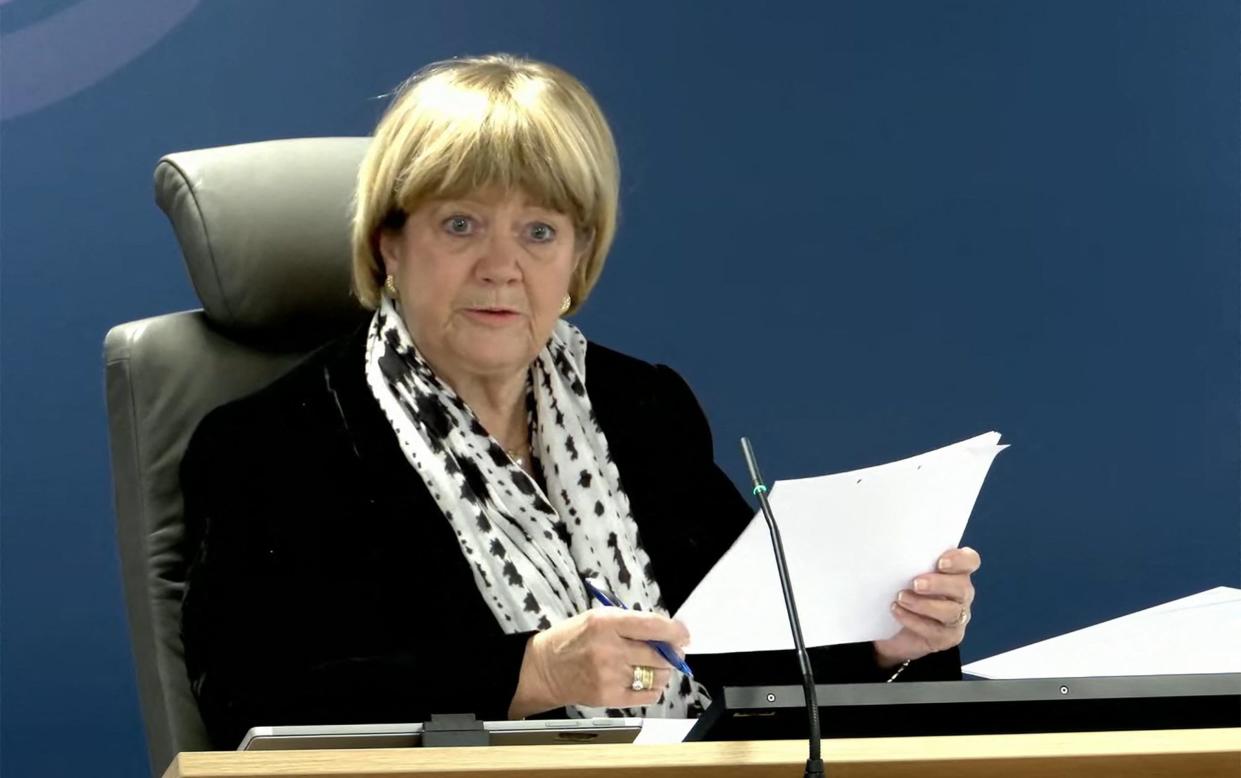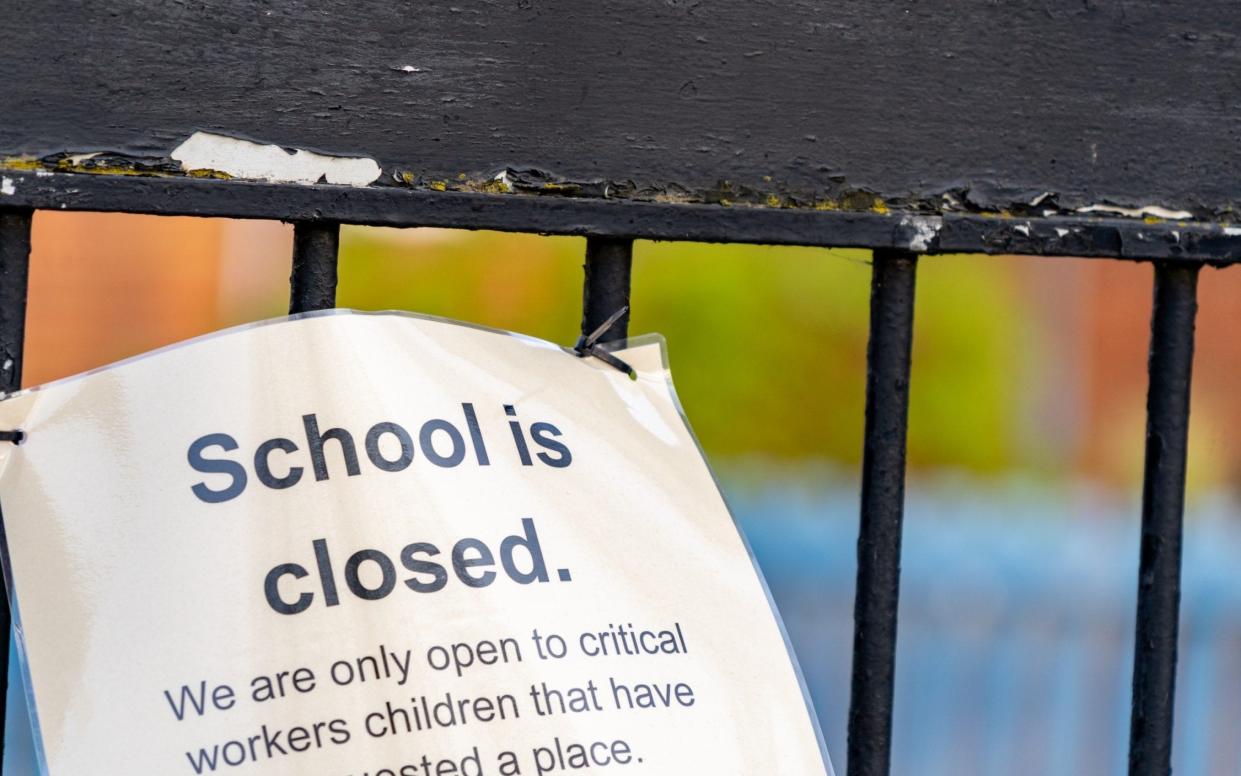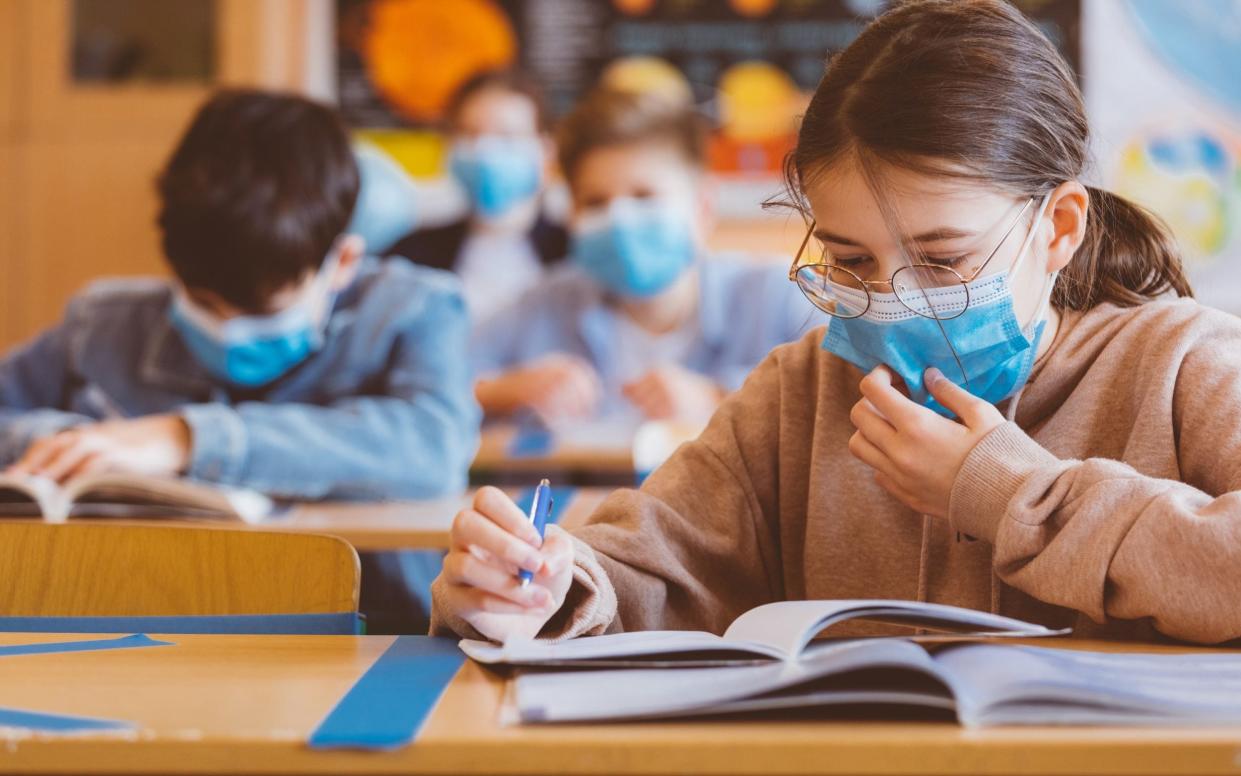Covid Inquiry could take six years to look at lockdown impact on children

The Covid Inquiry may not assess the harm of lockdown on children until six years after the school closures, charities have warned.
Baroness Hallett, the inquiry’s chairman, has been accused of presiding over “unacceptable” delays to investigating the impact on children who risk being the “last to be heard”.
In a letter to Lady Hallett, Save The Children and the Children’s Rights Alliance for England said that prioritising its other investigations was putting young people at the “back of the queue”.
The inquiry, which has already cost more than £78 million, has so far announced seven modules ranging from vaccines to procurement and Test and Trace.
It has only heard evidence for its first two modules assessing pandemic preparedness and decision-making during Covid.
Hearings have been scheduled up to summer 2025 but no children’s module has been timetabled.
The inquiry has said it will launch a module dedicated to education, children and young persons. However unless it finds time to hold hearings in between existing modules or rushes to hear evidence this year, it means the impact on children will likely not be heard until late 2025 or beyond, with the inquiry scheduled to last until at least 2026.
This would be more than five years after schools closed in March 2020 as the pandemic swept the country.

In the letter sent to the inquiry last week Louise King, director of the Children’s Rights Alliance for England and co-lead of Just for Kids Law, and Dan Paskins, director of UK Impact at Save the Children, said in their letter that the inquiry had provided no information of when children would be “truly represented”.
“The current state of play means that it could be five or six years on from school closures before the inquiry turns its attention to children’s experiences,” they said.
“This is simply unacceptable. The pandemic touched so many people’s lives but children in particular saw their rights deeply harmed in so many ways, including by the closure of schools, the dilution of safeguards, and in some parts of the UK losing their right to play and see other children their age.
“Why should they be among the last to be heard from in this legal process?”
The charities said there was a “lack of urgency” to hearing evidence about the harms suffered by children and was missing the opportunity to prioritise young people.
“This continued lack of urgency around taking evidence from children, and all those who made key decisions that impacted on children during the pandemic, worries us deeply.”
Emotional development delays
The letter cited growing evidence of the harms of lockdown on children including a recent survey of teachers which found children forced to learn from home during the pandemic were still suffering from emotional and social development delays.
They said that nine in 10 primary school teachers said their pupils had experienced emotional and social growth delays as a result of prolonged periods of school closures during lockdown.
The letter added: “We have long argued that children were treated with little thought by decision makers during the pandemic. The inquiry has had a golden opportunity to put children at the heart of its work, but disappointingly it looks as though children are being put to the back of the queue.”
Commenting on the letter, Ms King said she was frustrated the inquiry still had no timetable for a children’s module.
“We need to be serious about addressing the harms caused to the youngest in society and learn lessons from past mistakes as soon as possible. It makes no sense that investigating Covid’s impact on one of society’s most vulnerable groups might still be two years away.”

In January the inquiry announced it had appointed a specialist partner to work towards hearing directly from children. However, no hearings for a children’s module have been scheduled.
Mr Paskins called for the children’s module to be fast-tracked to avoid children being put at the back of the queue.
“The children’s module needs to be fast-tracked and heard as soon as possible. It is the duty of the Covid-19 Inquiry to learn lessons, so that children are never again failed in the way that they were by the response to the pandemic,” he said.
“Memories fade fast among children and a child who missed their first nativity will have had to wait more than half their life before the inquiry gets round to looking at what happened to them.
“All we know is that the inquiry wraps up in 2026 and there is still no firm timetable for the children’s module. We need to know the rationale behind decisions made relating to children, to fully grasp the impact on their education and development.
“Children were often left at the back of the queue during the pandemic, we can’t risk them being left in the same position in this inquiry.”
Direct evidence from children
The charities were among 40 signatories who previously criticised the inquiry for delays in taking direct evidence from children and warned that young people should not be an “afterthought or an inconvenience in this inquiry process”. The move prompted the inquiry to assign the specialist partner for hearing evidence from children earlier this year.
A spokesperson for the UK Covid-19 Inquiry said: “The Chair, Baroness Hallett, has made it clear that the inquiry will investigate the impacts of the pandemic on children and young people and this is set out in the inquiry’s terms of reference.
“The pandemic touched every aspect of people’s lives. The public deserves a serious, thorough and comprehensive examination of the UK’s planning and response.
“As part of our investigation, the inquiry is hearing hundreds of first-hand experiences from children and young people. These are being collected through a large-scale research project which is already underway. The findings will feed into the inquiry’s public hearings as evidence to help inform the Chair’s recommendations.”.


